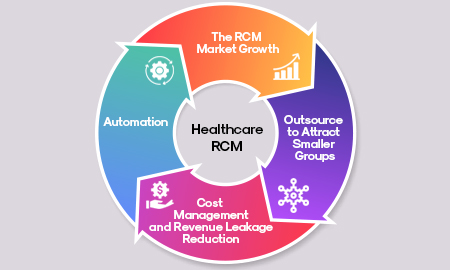The Payment Card Industry Data Security Standard (PCI DSS) is a widely accepted set of policies and procedures. The ultimate aim is to optimize the security of credit, debit and cash card transactions. It equally helps protect cardholders against any misuse of their personal information. Jointly created by four major credit-card companies, i.e, Visa, MasterCard, Discover and American Express, it focuses on objectives that save data.
Here, we elaborate on top significant objectives as a part of the PCI DSS Certified call center specifics,
What does PCI DSS state?
You must maintain each transaction that can be conducted. This requirement involves using effective firewalls to cause undue inconvenience to cardholders or vendors. The specialized firewalls come with wireless LANs, which are highly vulnerable to eavesdropping and attacks by hackers. The experts also ensure that authentication data such as personal identification numbers (PINs) and passwords must not involve vendors’ defaults. Here, customers must be able to smoothly and frequently change such data.
Agencies must ensure that the cardholder’s information gets protected. Key areas include dates of birth, mothers’ maiden names, social security numbers, phone numbers and mailing addresses. In addition, when cardholder data is transmitted through a public network, that data must be encrypted in the most efficient way. Besides, digital encryption is vital in all forms of the credit card transaction.
The network you plan to work on should protect against the activities of malicious hackers using frequently updated anti-virus software, anti-spyware programs and other anti-malware solution. Here, all applications must get free of bugs and vulnerabilities that might open the door to exploits in which data could be at risk. At Vital Solutions, patches offered by software and operating system (OS) vendors must be regularly installed to ensure the highest possible level of vulnerability management.
It’s equally essential to restrict system information and operation. Besides, cardholders must provide information to businesses unless they must know it to protect themselves and effectively carry out a transaction. Every individual must be assigned a unique and confidential identification name or number. Your organization must ensure that the cardholder gets protected physically as well as electronically.
When the network gets comprehensive monitoring and regular testing, it ensures that all security measures and processes are in place. It’s also about proper functioning, ensuring everything stays up-to-date. Programs such as anti-virus and anti-spyware must be provided with the latest definitions and signatures. These programs frequently scan all exchanged data, applications, random-access memory (RAM), and storage media when not continued.
Benefits of PCI DSS compliance
In recent times, PCI DSS compliance has enhanced among global businesses. But most companies are still failing to maintain compliance. So let us now primarily focus on the top benefits of PCI DSS compliance:
Gain customer trust
When in business, trust is the foundation. To successfully stay ahead in the competition, your customer’s trust matters to a great extent. Moreover, you need to transmit and process the payment details securely. When the agency meets the international standards for secure payment, it’s the best way to build and protect your reputation.
Prevent data breaches
Data compliance and management are essential in any IT infrastructure, especially if the process stores sensitive customer data. You must keep in mind that businesses are required to use robust firewalls and encryption. On the other side, they aren’t allowed to retain cardholder details; as a result, each PCI-compliant business is a less valuable target for criminals. Not only does it have a much harder time hacking the network, but it also won’t find the data they are looking for.
Meet global standards in payment card security
As mentioned previously, the PCI DSS regulations were initiated by top leading credit organizations in order to provide a mandatory level of protection for consumers. It’s more about ensuring that businesses meet minimum levels of security when they store, process, and transmit cardholder data.
If you’re able to achieve PCI compliance, it enables you to take your place among top businesses that are totally committed to data security and protecting consumers.
Enhance Transaction Security
Implementing PCI DSS compliance requires your organization to run multiple layers of security. They must be configured too. There must be an overall IT security strategy. It’s more about evolving strategy based on current threats. You can monitor the networks for unpatched holes or perhaps lapsed updates.
All the PCI requirements are met through IT security services like endpoint security, advanced firewalls or a vulnerability audit.
Provide a baseline for other regulations
Whether you need all levels of PCI DSS compliance means you’ve taken vital steps to protect customer data. There are significant areas of focus, including the basic premises like action to limiting the amount of sensitive data, dovetailing well with GDPR, ISO and other internationally mandated data security regulations.
Work with a PCI DSS-compliant call center
When your business handles payment transactions over the phone, your call center partner must be PCI DSS compliant. Moreover, the call center provides protection, peace of mind and security. Therefore, choosing a service provider that complies with the latest rules and regulations would be best.
-
Less frequent data breaches
With ongoing PCI compliance, the chances of cyberattacks obtaining customers are reduced. Companies that remained 100 percent compliant were not involved in any data breaches. However, compliant companies were negligent in monitoring network access, resulting in at-risk customer data.
-
Enhanced customer confidence
Consumers believe that the businesses they are dealing with are responsible if a customer’s data gets breached. Meanwhile, PCI-DSS compliance goes a long way toward relieving consumers’ fear and instilling loyalty. Displaying voluntary security certifications demonstrates you deserve customers’ trust. In addition, partnering with a PCI-compliant call center will secure the customer’s information and data, building customer confidence.
-
Limited liability exposure
If there’s a data breach, it can have significant and complex issues for any size business. You can now protect companies from lawsuits and excessive liability exposure. This also benefits you comprehensively in the legal case since you can show both consumers and banks you have done what was within your limit to secure confidential consumer payment information and other data.
-
Not limited to IT issues
One of the challenges with PCI compliance is the myth that it’s an IT issue. Remember, a significant part of compliance falls under network security; as a result, it falls under the umbrella of technology. As a result, hackers are more likely to find ways to access the agency’s sensitive card data through non-technical methods and people.
Employees working with the card payment system must be trained on how their job gets done within PCI compliance.
Final Wrap
Prioritizing how credit card data gets stored is the first step when defending against cyber criminals. A professional call center service provider will only capture and store payment data when absolutely essential. Moreover, it immediately lowers the risk of data falling into the wrong hands.
Our experts can run every possible measure to eliminate data breaches. Moreover, a group of trained staff can create processes and find technologies that help with this effort. It’s possible to replace the data currently stored or transmitted by encrypting or tokenizing the data.



